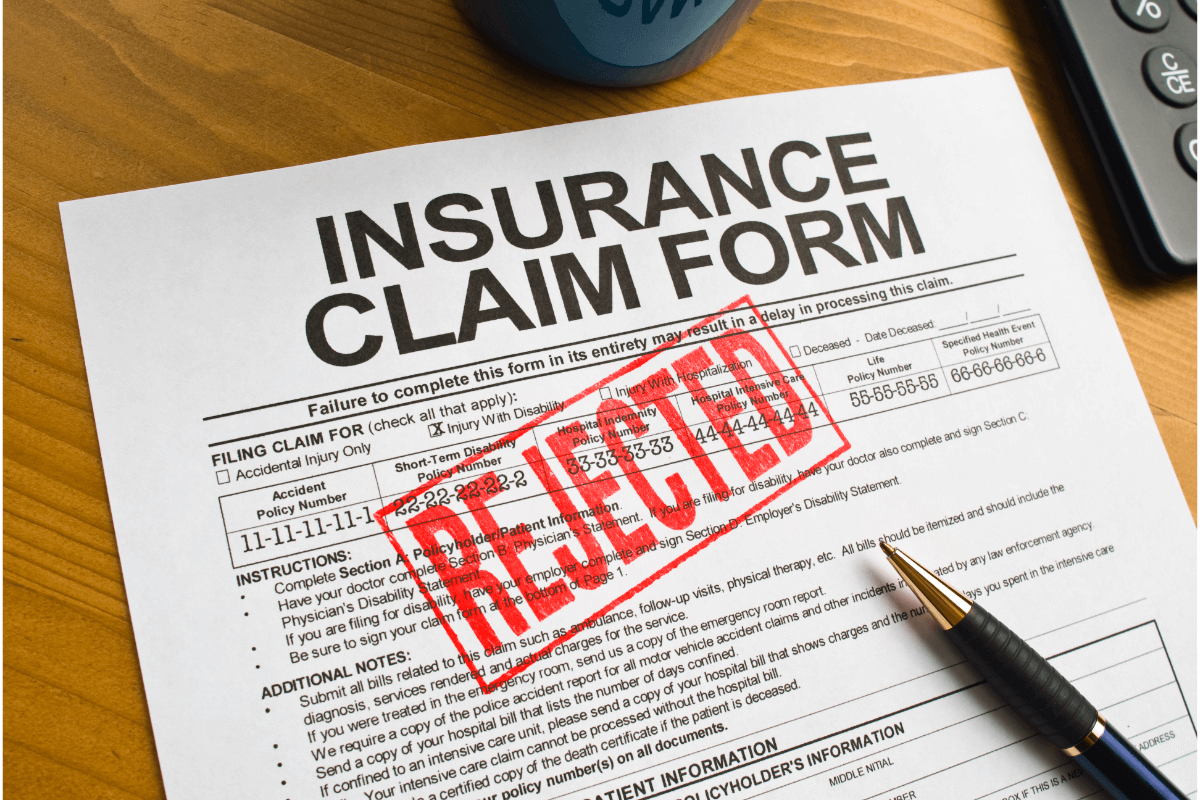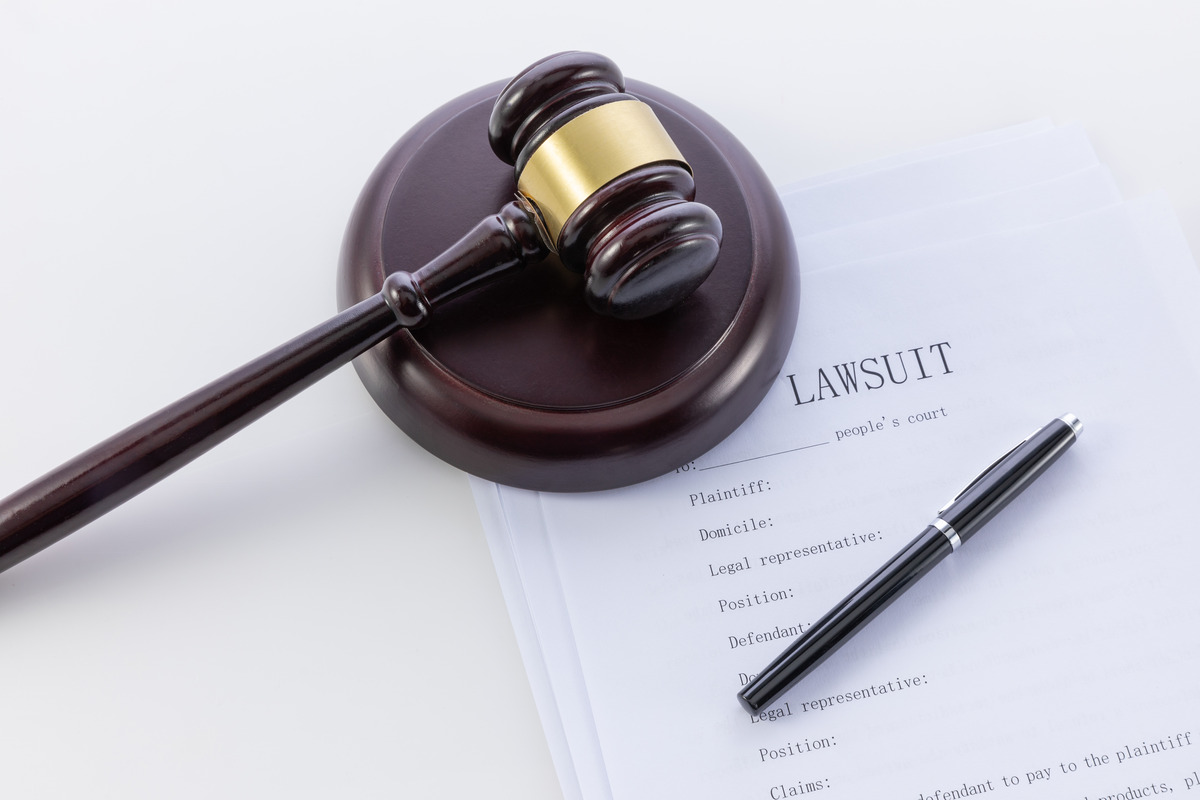How to Appeal a Denied Car Accident Claim in Texas
Introduction
Table of Contents:
- Understanding Car Accident Claims in Texas
- Common Reasons Car Accident Claims Get Denied
- The Importance of Acting Quickly
- Step-by-Step Guide: How to Appeal a Denied Car Accident Claim in Texas
- Potential Outcomes of an Appeal
- Tips for Strengthening Your Appeal
- Working With an Attorney
- Conclusion & Strong Call to Action
Understanding Car Accident Claims in Texas
Like many states, Texas is known for its busy highways and bustling metropolitan areas. Accidents are, unfortunately, all too common on these roads. When you’re involved in a car accident—a minor fender-bender or a serious collision—you typically file a claim with your or the other driver’s insurance company to seek compensation for damages and injuries.
Liability Laws
Texas follows a fault-based or “tort” system for car accidents. This means the at-fault driver (and that driver’s insurance company) is usually responsible for paying the damages resulting from an accident. If the other driver is found liable for your injuries or property damage, their insurance should cover you—up to the policy limits.
Insurance Requirements
In Texas, drivers must carry a minimum amount of liability insurance:
-
- $30,000 for bodily injury per person
- $60,000 for bodily injury total per accident
- $25,000 for property damage
However, these are only the minimums; many drivers opt for higher coverage limits. If the damages exceed the policy limits, additional steps may be necessary, including pursuing the at-fault party directly or utilizing underinsured motorist coverage if you have it.
Why Claims Matter
Car accident claims exist to help injured parties recover financially from the unexpected burdens of:
-
- Medical bills
- Lost wages due to inability to work
- Pain and suffering
- Repairs or replacement of your vehicle
Common Reasons Car Accident Claims Get Denied

- Insufficient Evidence: Your claim might be labeled as unsubstantiated if you did not provide the necessary documentation—like medical records, accident reports, or witness statements.
- Policy Exclusions: Certain insurance policies exclude specific types of accidents or driver behavior. Suppose your accident falls under an exclusion—like if you were using the vehicle for commercial purposes when the policy only covers personal use—the insurance company might deny your claim.
- Delayed Filing: Insurance companies often have strict deadlines for reporting accidents and filing claims. If you missed that window, your claim might be denied.
- Disputed Liability: The insurance company may argue that their policyholder was not at fault or that you share a significant portion. In Texas, you can still recover damages if you are less than 51% at fault, but your percentage of fault reduces your compensation.
- Lack of Coverage: If the at-fault driver’s policy limits are too low to cover all damages, or if you did not carry sufficient coverage, the insurance company may deny the claim or only pay a portion.
- Pre-existing Conditions: Sometimes, insurers deny claims by stating that the injuries were pre-existing and not caused by the accident or that the severity of the injuries is unrelated to the accident.
The Importance of Acting Quickly

- Statute of Limitations: In Texas, you generally have two years from the accident date to file a personal injury lawsuit. If you try to pursue legal action after that time, your case is likely to be dismissed. This law underscores the importance of not delaying your decision to appeal.
- Insurance Company Deadlines: Most insurance policies also set deadlines to appeal denied claims. These deadlines can vary. Missing these deadlines can forfeit your right to appeal directly with the insurance company.
Step-by-Step Guide: How to Appeal a Denied Car Accident Claim in Texas
Step 1: Review the Denial Letter
The first step is to read your denial letter carefully. This is your roadmap. The letter usually explains:
-
- Why your claim was denied
- The specific policy provisions that led to the denial
- Your right to appeal and the deadline for doing so
Step 2: Gather and Organize Evidence
Compile all documents that support your claim. These may include:
-
- Police Reports: If the police were called to the scene, you should have access to an official accident report.
- Medical Records: These show the nature and extent of your injuries.
- Bills and Receipts: Prove your financial losses, like medical bills or car repair invoices.
- Witness Statements: If there are people who can verify the other party’s fault or your injuries, get their statements.
- Photographs/Videos: Visual evidence of the accident scene, your car’s damage, and any visible injuries can be compelling.
Step 3: Draft a Formal Appeal Letter
Write a thorough letter addressing the reasons for the denial one by one. Keep the following in mind:
-
- Be Concise and Organized: Stick to factual statements and avoid emotional language.
- Reference Evidence: Point the adjuster to the specific documents, photos, or statements that counter the reasons for the denial.
- Request a Response: Ask for a formal reply within a specified timeframe.
Step 4: Contact the Insurance Adjuster (If Appropriate)
Sometimes, a phone call can clarify misunderstandings. However, be cautious; any conversation with an insurance adjuster can be used against you. If you feel unsure, consult an attorney first. If you do speak with the adjuster, keep notes of:
-
- Date and time of the call
- Name and position of the insurance representative
- Summary of the discussion
Step 5: Escalate If Necessary
If your initial appeal letter doesn’t resolve the issue, you may need to escalate within the insurance company. You could request that a claims supervisor or manager review the case. Some insurers offer a formal appeals board. If these internal steps fail, external legal measures—like arbitration or filing a lawsuit—could be your next course of action.
Step 6: Consider Filing a Lawsuit

If you’ve exhausted your options with the insurance company, it may be time to file a lawsuit. This is where an experienced personal injury lawyer can provide invaluable guidance. Texas law provides for civil litigation when an insurer acts in bad faith or refuses to pay what you owe under the policy.
Potential Outcomes of an Appeal
When you appeal a denied car accident claim in Texas, you can face a range of possible outcomes:
- Reversal of the Denial: The insurer may find additional evidence convincing and approve your claim.
- Partial Payment: The insurer may agree to cover some aspects of your claim but still refuse to pay the full amount.
- Negotiated Settlement: You and the insurer may settle on an acceptable compromise figure for both parties.
- Further Denial: The insurer might stand by the initial denial. If that happens, your next step could be arbitration or litigation.
- Legal Proceedings: You may file a lawsuit if negotiations reach a deadlock. A judge or jury decides the outcome when a case goes to trial.
Tips for Strengthening Your Appeal
1. Document Everything

2. Be Proactive
Don’t wait for the insurance company to dictate the process. Follow up on your appeal letter, provide any requested documents promptly, and ensure deadlines are met. Proactivity shows that you’re serious about your claim.
3. Avoid Contradictory Statements
Your medical records, statements, and any comments you post on social media can be used against you. Be consistent when describing your injuries and the circumstances of the accident. If you claim you have debilitating back pain, avoid social media posts that suggest you’re fine.
4. Leverage Expert Opinions
Expert opinions from doctors or accident reconstruction specialists can strengthen your appeal for serious injuries. These professionals can provide insights into how the accident occurred and the impact on your health.
5. Stay Polite and Professional
Working With an Attorney

Benefits of Hiring a Lawyer
- Legal Expertise: An attorney knows Texas personal injury and insurance laws and can use them to your advantage.
- Negotiation Skills: Insurance adjusters are skilled negotiators. Having a lawyer on your side ensures you’re on equal footing.
- Evidence Gathering: Attorneys have the resources to gather compelling evidence like expert testimonies, medical evaluations, and accident reconstructions.
- Court Representation: If your claim goes to court, you’ll need someone to argue your case effectively before a judge or jury.
Free Consultations
Many personal injury law firms in Texas offer a free initial consultation. This is a low-pressure way to discuss your case, learn your options, and decide if hiring a lawyer is right. If you’re worried about costs, know that many lawyers work on a contingency fee basis, meaning you only pay if they win your case.
When to Seek Legal Help
- Severe Injuries: If you’ve suffered life-altering injuries, high medical bills, or lost income, legal expertise can help you get the maximum compensation.
- Complex Liability: If there’s a dispute about who’s at fault, it might require expert investigations or third-party testimony.
- Bad Faith by the Insurer: If the insurance company is unreasonably delaying payment, making fraudulent claims about your coverage, or otherwise acting in bad faith, a lawyer can help you hold them accountable.
Conclusion & Strong Call to Action
Appealing a denied car accident claim in Texas doesn’t have to be an impossible challenge. By understanding the claims process, knowing why denials happen, and following the correct steps to appeal, you increase your chances of securing the compensation you rightfully deserve. Every situation is unique, and sometimes an aggressive stance—even legal action—is necessary to reach a fair resolution.
Remember that time is of the essence. The longer you wait, the harder it can be to gather evidence and adhere to legal deadlines. If you’re facing a denied car accident claim and feel you’ve hit a dead end, don’t hesitate to seek professional help.
At Roxell Richards Injury Law Firm, we fight for accident victims across Texas. We understand that a denied claim isn’t the end of your story—it’s just the beginning. Let us guide you through the appeals process, gather crucial evidence, and negotiate assertively on your behalf. If the insurance company won’t budge, we’re not afraid to take your case to court.
Ready to take the next step? Contact us today at Roxell Richards Injury Law Firm and let our experienced legal team handle every aspect of your appeal. We’ll stand by your side, ensuring you have the best chance at the financial recovery you deserve. Your well-being is our top priority, and we’re here to help you appeal a denied car accident claim in Texas—every step of the way.
Roxell Richards Injury Law Firm
Houston, TX z7057
Phone: (713) 974-0388
Fax: (713) 974-0003
Frequently Asked Questions
What does it mean to appeal a denied car accident claim?
Appealing a denied claim means challenging the insurer’s decision and asking them to reconsider your claim with additional evidence or legal arguments.
What evidence helps support a claim appeal?
Helpful evidence includes medical records, police reports, photos, witness statements, expert reports, and documentation of lost wages or expenses.
What should my appeal letter include?
An appeal letter should explain why the denial was incorrect, reference policy terms, attach supporting evidence, and request a specific outcome.
What happens if the insurer still denies my appeal?
If the insurer upholds the denial, you may pursue mediation, arbitration, or file a lawsuit against the insurance company.
How long does it take to resolve an appeal?
The timeline varies based on insurer procedures and case complexity, but insurers often review appeals within weeks to a few months
